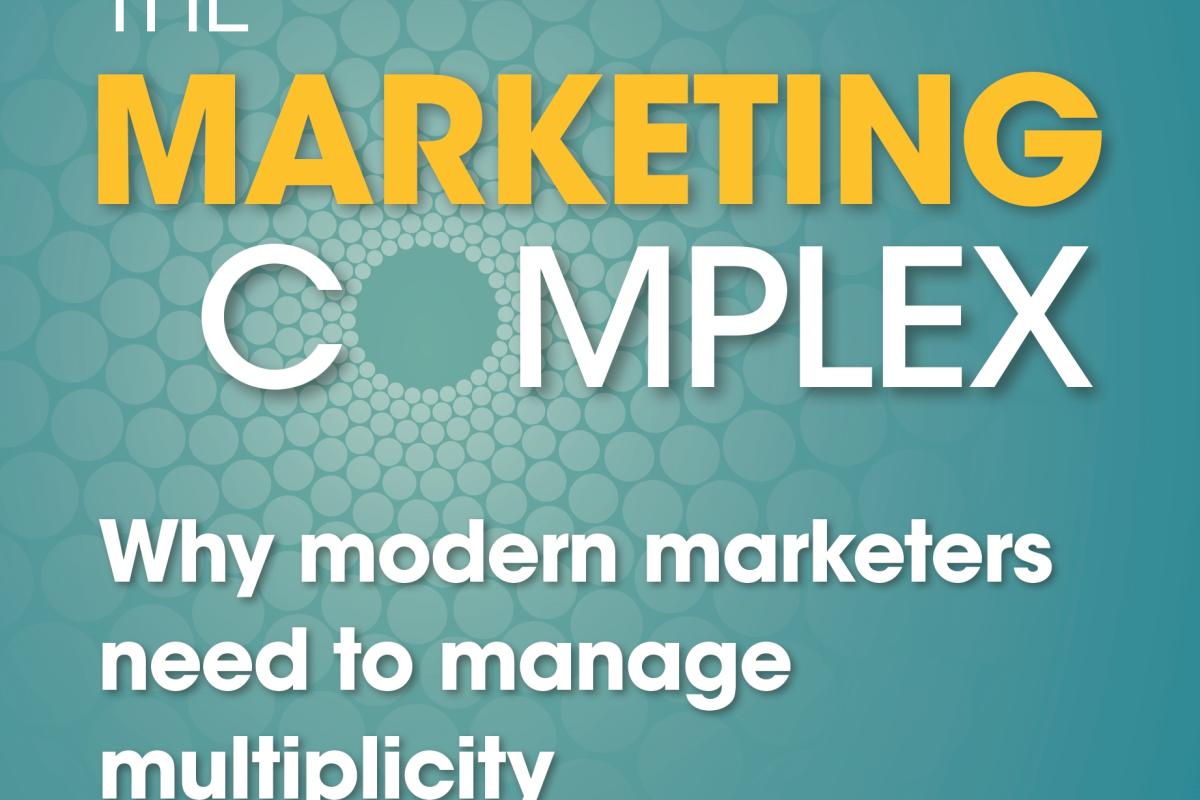Ben Shaw, BBH London's Head of Strategy said on taking up the role that to improve the standard of work the industry needed to “get different heads together x using the best insight tools + loudly focus on simplicity”. Assuming that the first two are irrefutable that leaves a loud focus on simplicity. Shaw is not alone. Dave Trott said that simple is smart whereas complicated is stupid.
'Simple'. A word that has appeared in Campaign more times than 'Facebook', and twice as many times as 'complex'. Blimey, it must be important.
Nevertheless, in ‘The Marketing Complex’ (a clever play on words — the ‘complex’ being our obsession with reducing complexity) Giles Lury, whose books ‘The Prisoner and the Penguin’ and ‘How Coca-Cola Took Over The World’ I have also reviewed, posits that we oversimplify too often and in the process, are doing brand health as a whole a disservice.
Lury’s argument is that brands, channels and consumers (now marketing literate) have all grown in complexity over the last fifty years.
As a consequence, marketers need to create complex plans that take into account the exponential increase in product / channel / target group combinations.
There is considerable merit to this position — we would be foolish to treat all customers and channels the same. In addition, Lury stresses that he is not arguing against simplicity in any circumstance, more that marketers’ should be aware of all the moving parts and ensure that what needs to be accounted for is; no more, no less. As I see it, fragment too much and you risk never achieving ‘brand fame’ through the collective consciousness, too little and you risk mass indifference.
Lury also proposes a new Marketing Complex Framework which distinctly separates brand philosophy (the long-term purpose, principles and personality) from go-to-market propositions where further complexity can happen (what you offer to whom). The author suggests that too often little thought is given to creating a distinct brand philosophy, with much reuse of the same ‘mom and apple pie’ values, rather than developing a more honest, nuanced philosophy that recognises today’s complex marketplace and allows for multiplicity of purpose. Get the foundations right and, well, you get the rest.
But, is Lury right?
Well, (prepare yourself for this unexpected pun) the answer is complex.
In the space of just twenty years almost every channel has fragmented, few channels have died but a number of new ones have been created, each demanding further attention and specialisation.
The web has exposed every brand to the world, and the ability to target consumers with precision at scale. Marketers must acknowledge and embrace this complexity if they are to justify their salaries.
And yet.
The subtitle for the book is “why modern marketers need to manage multiplicity”. A compelling writer, Lury makes a very good fist at explaining why this needs to be done. The problem is, I fear, that marketers may need to manage multiplicity, but whether they can or even want to, is the real question.
It may be that the very reason marketers have embraced simplicity in the areas they control (most often the message) is a response to increased complexity in those that they don’t. The drive for simplicity may just be an attempt to make our workloads more manageable.
It all comes down to this. Today, two pieces of direct mail addressed to my home’s previous occupants were posted through my letterbox. I have lived there nine years. If many marketers are still struggling to get the basics right, what hope for complexity?
By John Newton, marketing director, Aroq. Follow him @johnjnewton



